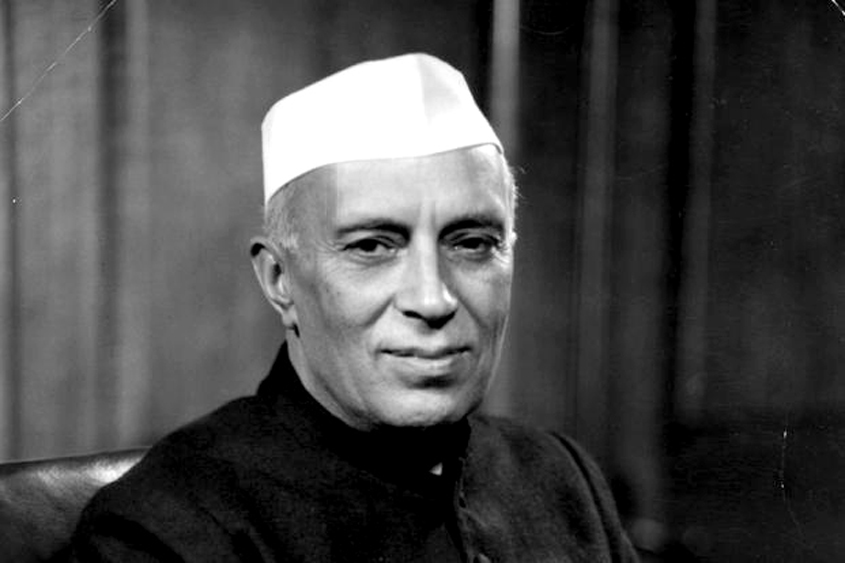 A new President’s oath taking address, though a routine matter, is also an occasion for people to judge whether the dignitary who is going to take over the country’s highest office under the Constitution has shed his loyalty to the political party he belonged to and is now above partisan politics. The inaugural speech of President R.N. Kovind passed a fair deal of that test, but unfortunately, left a little chink that could have been avoided. He rightly talked about the contributions made by Gandhi, Vallabhbhai Patel and B.R. Ambedkar to India’s freedom struggle and development. His reference to Deen Dayal Upadhyaya though not very apt for the occasion, may be papered over as loyalty to one of his earliest political leaders. But what was unfortunate was the omission of Nehru’s name. Kovind need not have praised Nehru on his political achievements, but to talk of India’s freedom movement without the mention of Nehru is unacceptable, rather a heresy. The truth is that whether you like it or not, Nehru’s massive contribution to the freedom struggle cannot be masked.
A new President’s oath taking address, though a routine matter, is also an occasion for people to judge whether the dignitary who is going to take over the country’s highest office under the Constitution has shed his loyalty to the political party he belonged to and is now above partisan politics. The inaugural speech of President R.N. Kovind passed a fair deal of that test, but unfortunately, left a little chink that could have been avoided. He rightly talked about the contributions made by Gandhi, Vallabhbhai Patel and B.R. Ambedkar to India’s freedom struggle and development. His reference to Deen Dayal Upadhyaya though not very apt for the occasion, may be papered over as loyalty to one of his earliest political leaders. But what was unfortunate was the omission of Nehru’s name. Kovind need not have praised Nehru on his political achievements, but to talk of India’s freedom movement without the mention of Nehru is unacceptable, rather a heresy. The truth is that whether you like it or not, Nehru’s massive contribution to the freedom struggle cannot be masked.
I will give an instance of how in spite of being a committed member of the Socialist Party of Jayaprakash Narayan and Dr Ram Manohar Lohia since 1946, I faced a similar situation and how I dealt with it.
It must be recognised that hero worshipping Jawaharlal Nehru was natural for my generation, which had been brought up on his sacrifice and intellectualism. I remember basking in Nehru’s presence when he came to Lahore to canvass for my father’s assembly election. Again when in 1945, after his release from prison, Nehru, while going to Srinagar, broke his journey at Lahore. My father had invited him and some other important leaders for an informal get-together at our place. I remember the awe, inspiration, admiration and respect all of us felt in his presence. And yet, in 1955, I behaved in a manner that many may call unacceptable and foolish.
We in the Socialist Party were convinced that Nehru, who had shown the vision of socialism to us, had not retained that pace and was following wrong policies.
In 1955, the Punjab High Court at Chandigarh was to be formally inaugurated by Nehru. I was then general secretary of the High Court Bar Association. Nehru had come to Chandigarh the evening before. My father, who was then Chief Minister of Punjab, invited Nehru for breakfast at his residence. I was staying with father though my office was in another sector. I had grown up hero-worshipping Nehru, but by 1955 I had also become a full blooded socialist. We in the Socialist Party were convinced that Nehru, who had shown the vision of socialism to us, had not retained that pace and was following wrong policies. Our disappointment with his policies was deep. So I told my father that I would not be present at the breakfast table to receive Nehru, though my wife would be there along with my mother to look after the arrangements. My father and I had a beautiful understanding. Our sense of values and respecting each other’s views were the same. So he accepted my hesitation, though he mentioned that I was being childish. I left home early morning for my office before Nehru arrived for breakfast. I had the same admiration for Nehru even at the time, so I could not think of insulting him by not joining him for breakfast while being at home. Of course I behaved absolutely correctly, and all of us office bearers received Nehru with all the dignity, respect and deference due to him when he came to the High Court to inaugurate it.
Later on, and now I laugh at my presumptuousness—a chit of a boy, whom Nehru would not even have noticed, beating his chest by absenting himself from such a close breakfast meeting with one of the greatest Indian leaders ever, someone who was even a hero for our family. But then such are the peculiarities of radical youth—the devil may care attitude and the almost fatalistic belief in the rightness of the cause of one’s own party. But then I suppose that is the real difference between youth and old age. One may laugh now, but one does not demean it because at that time it represented what I like to feel was a youthful, genuine and unshakeable faith in a socialist society, a faith, fortunately I have still not lost.
Justice Rajinder Sachar is a former Chief Justice of the High Court of Delhi.

